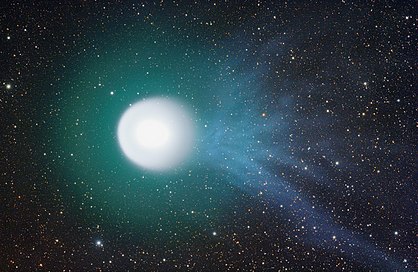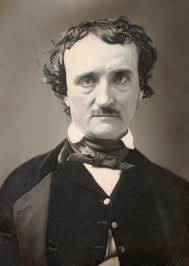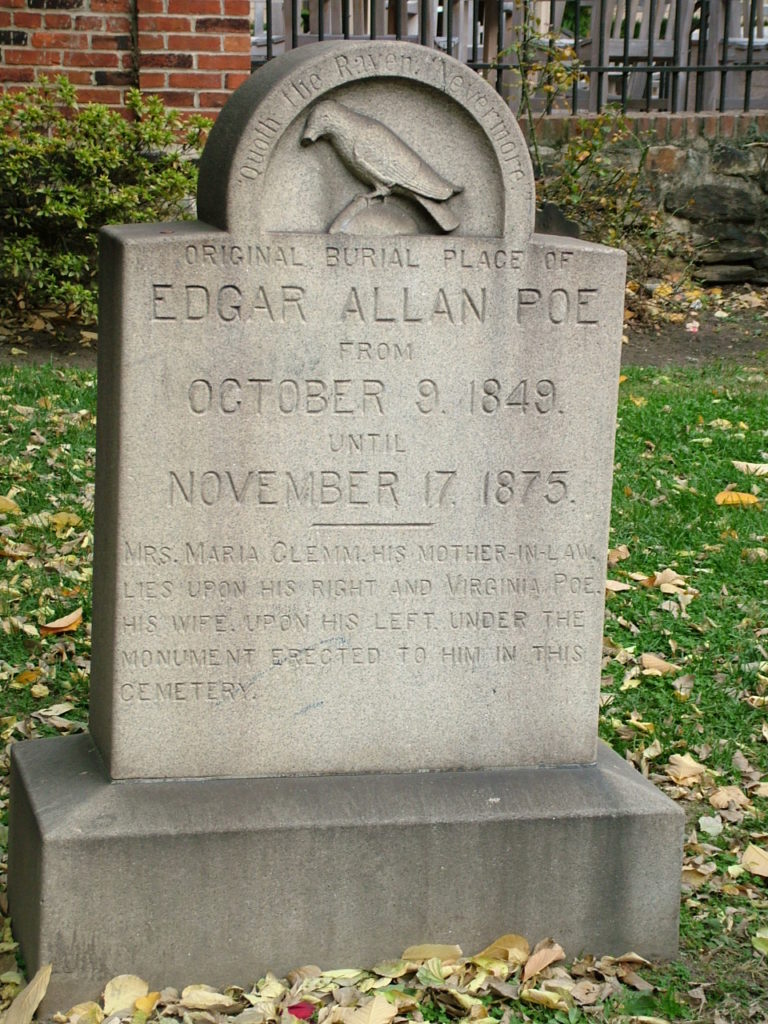200. Edgar Allan Poe’s “The Power of Words” and the infinity of matter
I just came across an interesting and, as far as I know, original argument why matter is infinite from Edgar Allan Poe. The argument takes place in the course of a very philosophical and haunting dialogue he wrote called “The Power of Words” (1845). The dialogue has two interlocutors – Agathos and Oinos – and Oinos has died and is now coming to terms with his “new-fledged immortality.” Many interesting observations are made as Agathos informs Oinos of various things which were hitherto concealed.
In his new state Oinos expects to be “cognizant of all things, and thus at once be happy in being cognizant of all.” But Agathos, much to Oinos’ surprise, says not knowing all is a blessing and complete knowledge would be “the curse of a fiend.” Indeed, complete knowledge is even denied to God. Oinos asks: “But does not The Most High know all?” To which Agathos responds: “That (since he is The Most Happy) must be still the one thing unknown even to Him.”
He then asks Oinos to look:
“Look down into the abysmal distances!—attempt to force the gaze down the multitudinous vistas of the stars, as we sweep slowly through them thus—and thus—and thus! Even the spiritual vision, is it not at all points arrested by the continuous golden walls of the universe?—the walls of the myriads of the shining bodies that mere number has appeared to blend into unity?”

Oinos responds:
“I clearly perceive that the infinity of matter is no dream.”
And then Agathos offers his fascinating argument:
“There are no dreams in Aidenn—but it is here whispered that, of this infinity of matter, the sole purpose is to afford infinite springs, at which the soul may allay the thirst to know, which is for ever unquenchable within it—since to quench it, would be to extinguish the soul’s self.”
The argument is hard to unravel since it is unclear what is meant by the phrase “infinity of matter.” I take it to mean that there is an infinite number of things, like stars, that exist. Moreover, it is unclear what “extinguish the soul’s self” means. We might think it means that the soul would die. If this is the case then we can try to provide a few suppressed premises and formalize the argument as follows:
Premise 1: The life of our souls is sustained just as long as our desire to know is not satiated.
Premise 2: If matter were not infinite then knowledge of things could, in principle, be complete.
Premise 3: If our knowledge were to be complete then our souls would die.
Premise 4: But our souls cannot die: they are (given the context of the dialogue) immortal.
Therefore, matter is infinite and full of “infinite springs.”
We can understand the meaning of premise two if we take a look at this passage in which Agathos speaks of an imagined “being of infinite understanding”:
“It was deducible from what they knew, that to a being of infinite understanding—one to whom the perfection of the algebraic analysis lay unfolded—there could be no difficulty in tracing every impulse given the air—and the ether through the air—to the remotest consequences at any even infinitely remote epoch of time. It is indeed demonstrable that every such impulse given the air, must, in the end, impress every individual thing that exists within the universe;—and the being of infinite understanding—the being whom we have imagined—might trace the remote undulations of the impulse—trace them upward and onward in their influences upon all particles of all matter—upward and onward for ever in their modifications of old forms—or, in other words, in their creation of new—until he found them reflected—unimpressive at last—back from the throne of the Godhead. And not only could such a thing do this, but at any epoch, should a given result be afforded him—should one of these numberless comets, for example, be presented to his inspection—he could have no difficulty in determining, by the analytic retrogradation, to what original impulse it was due. This power of retrogradation in its absolute fulness and perfection—this faculty of referring at all epochs, all effects to all causes—is of course the prerogative of the Deity alone—but in every variety of degree, short of the absolute perfection, is the power itself exercised by the whole host of the Angelic intelligences.”

If an all knowing God exists then this God would know the nature of everything and how each thing relates to others in a finite matrix of causality…even a seemingly chaotic comet could be understood! But note that, as we saw above, even God lacks infinite understanding! So nothing could have a “faculty of referring at all epochs.” Apparently, in both this and life and the next, everyone, including God, will be left with an “algebraic analysis” and a “capacity for indefinite progress” with “no bounds conceivable to its advancement and applicability.”
However, we might not read “extinguish the soul’s self” to mean the soul would die. After all, if Poe had meant this why didn’t he just write “extinguish the soul”? So perhaps there can be a soul without a self – presumably something still terrible. If this reading is preferred then perhaps the argument would go like this:
Premise 1: The soul’s self is sustained just as long as our desire to know is not satiated.
Premise 2: If matter were not infinite then knowledge of things could, in principle, be complete.
Premise 3: If our knowledge were to be complete then our soul’s self would die.
Premise 4: But something has acted with “purpose” to prevent the death of the self from happening.
Therefore, matter is infinite and full of “infinite springs.”
But who has acted with this purpose? Agathos says this purpose is whispered in the realm of Aidenn. Why the secrecy? Could it be the “Divine creative power” that is mentioned? Could it be the “host of Angelic intelligences”? Something else?
We are not given the answer. But I suppose this is fitting for a dialogue that tells us complete knowledge is a curse.
Read the dialogue here to discover more hidden mysteries of the universe including the true power of words and thoughts!
For Leibniz’s arguments for why there are no atoms and matter is infinitely divisible, go here.
For my post on Poe’s “The Masque of the Red Death” and the coronavirus, go here.

